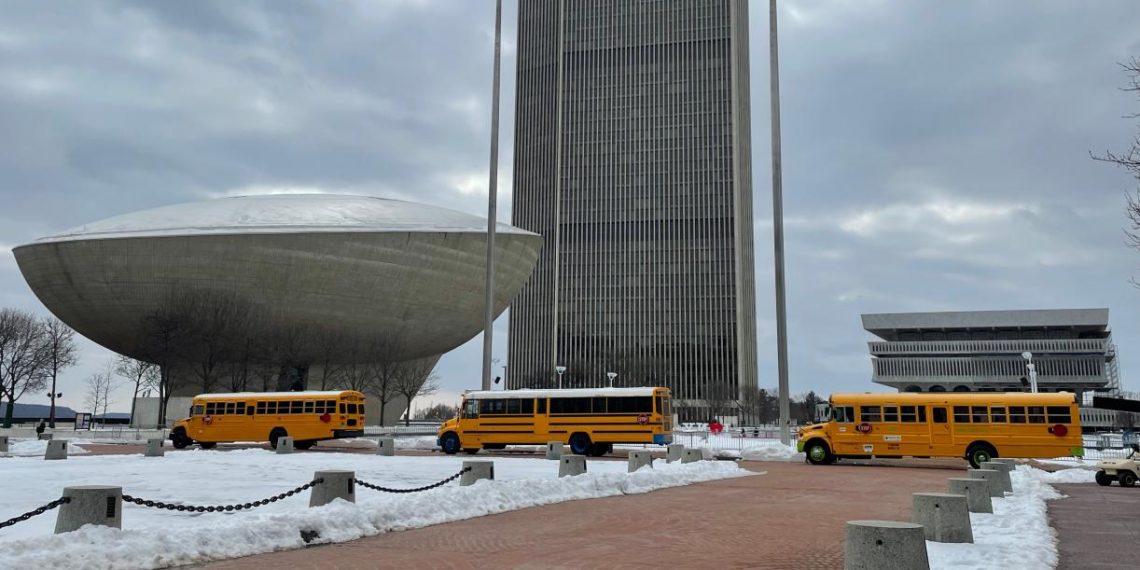With support from WRI’s Electric School Bus Initiative and its partners, all of New York’s school buses will be electric by 2035, with $500 million in state funding to support the transition.
The Challenge
Millions of children ride buses to school every day in the United States, including more than 2 million students in New York State. Most of these buses are powered by diesel fuel, which produces exhaust linked to asthma, respiratory and heart diseases, and developmental and cognitive problems.
Children from communities of color and low-income neighborhoods and students with disabilities are more likely to depend upon a school bus, and are thus disproportionately exposed to higher levels of air pollution. While electric buses are a cleaner alternative, they currently make up only a small percentage of school buses.
WRI’s Role
In collaboration with partners and communities, WRI’s Electric School Bus Initiative aims to generate momentum to equitably electrify all U.S. school buses by 2030. WRI worked with several key stakeholders — including the NY Governor’s office — to help secure the nation’s first statewide electric school bus mandate.
Building on the work of state and local advocates, WRI provided the NY Governor’s senior staff, legislature staff and advocacy groups with data and technical analysis on school bus electrification, including on preferred policies, their potential effects and projected costs. This analysis ultimately informed New York’s electric school bus mandate and funding mechanism.
WRI also formed critical partnerships with environmental, health and equity groups to build momentum for school bus electrification legislation, including the American Lung Association, Electrify NY, NY League of Conservation Voters, Tri-State Transportation Campaign and West Harlem Environmental Action, Inc. (WE ACT) for Environmental Justice. WRI organized events to inform legislators and engage public stakeholder groups, including by creating a virtual information session with a panel of electric school bus manufacturers; organizing an in-person ride-and-drive press event with electric school buses at the state capitol in Albany; and holding discussions with education groups.
WRI experts also proposed funding levels for electric school buses through New York’s Environmental Bond Act, which was successfully adopted by voters in November 2022 and included $500 million for electric school buses.
The Outcome
On April 7, 2022, New York passed its statewide mandate that all new school bus purchases must be electric starting in 2027, and the entire fleet must be electric by 2035. The legislation — the first statewide electric school bus mandate in the U.S. — was accompanied by $500 million in funding through a subsequent voter-approved environmental bond act. Moreover, the mandate’s equity provision ensures that underserved communities and those most affected by the dangers of diesel pollution will benefit from the transition from diesel to electric buses.
With the second-largest fleet in the nation, New York State relies on about 50,000 school buses to transport 2 million students every day. Electric school buses will help children breathe cleaner air while reducing the state’s greenhouse gas emissions.
As the first state in the nation to enact a statewide mandate, New York sets an example that other U.S. states and cities can follow. Already, three additional states — Connecticut, Maine and Maryland — have adopted similar mandates, with more under consideration by several state legislatures.



